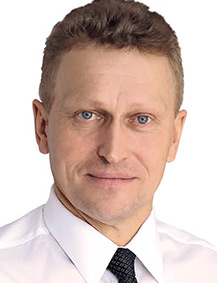Genetics & Breeding of Cattle Practice
 Genetics & Breeding of Cattle Practice Presentation
Genetics & Breeding of Cattle Practice Presentation
In recent years, dairy farming has developed a strange situation: cattle began to be perceived as machines for the production of milk. It is believed that it is enough to give cattle more and slightly better quality of 'fuel' (feed), and the result will immediately increase. Other experts believe that the solution lies in the construction of milking parlors: it's better to milk - you'll get more. But experience proves the fallacy of this approach. Unproductive cows can not give 30 liters even on the most advanced milking machine with computer control. Such cows, even if they consume high-quality food, do not give more milk, they gain weight. We can send them to the meat factory, but we can not replace them with other cows.
As a result, there is an urgent need to remind (someone to learn for the first time) that feeding and maintenance are undoubtedly very important, but these are just conditions for realizing the potential, that is, the hereditary capabilities of the animal to give a lot of quality products. It is impossible to form this potential in a couple of months - it is laid down for several years - the change of generations in cattle breeding takes 4.5-5 years. This process is continuous, requiring painstaking work on a fairly serious level.
The task of our practice is to give not just knowledge, but an understanding of the meaning and tasks of selection and breeding work in each herd, regardless of the status and current level of productivity. Knowing the theoretical foundations of genetics and breeding, understanding information about modern methods of assessment and reproduction, mastering in practice the possibilities of using programs to increase the efficiency of the work of the breeder are the main areas for which we plan to work with our specialists. At the same time, we consider it important to take an integrated approach to solving the tasks: the genetic potential is realized in specific conditions, only the interaction of genetics and competition gives a real result - the quantity and quality of products, income or loss. The breeder can not work in isolation from production processes. Selection is possible in the event that there are opportunities to choose and replace poor-quality material, as a consequence, normal reproduction is required. Obtained 'improved samples' should be used in a qualitative way - that means, it is necessary to create optimal conditions and stable technology. 'Fuel' for such 'machines' should also be high-quality - therefore, it is necessary to monitor the full value of feeding. We plan to give 'know-how cases' on all these elements of future success. And we will attract the best specialists regardless of the region of location, because the main criterion will be authority in a particular area and the availability of practical results of their work.
Genetics & Breeding of Cattle Practice is a dynamically developing structure and focuses on the market demand, our plans for activities and training for the year are adjusted as the needs and our capabilities arise.
Head of Practice: Anatoly SHULAKOV
I am waiting for your call on the phone: (3812) 55-11-16, 55-15-03
as well as your emails to an email address: geneticsbreeding@agrobiocluster.ru.
Experts List of Genetics & Breeding of Cattle Practice:
Head of Practice - Anatoly Shulakov
External assessment of livestock, maintenance technology and milking:
Vladislav Mishutin
Selection and breeding work:
Semyon Treshchuk
Elena Skorokhod
Irina Yushkova, Candidate of Agricultural Sciences
Ekaterina Aydarova
Semen realization marketing:
Olga Balykova
Issues of reproduction, gynecology, obstetrics and veterinary:
Ekaterina Gribkova
Feeding:
Alexander Ovsyannikov
Issues of quality, storage technology and defrosting of seeds:
Mikhail Patsukov
Implementation of livestock breeding legislation:
Anton Zhuravlev
Irina Machievskaya
Olga Peregudina
Economic consulting:
Ekaterina Trufanova
